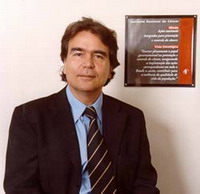Brazilian government adds "morning after" pills to its birth control program to help poor people
Brazil's government has included "morning after" pills to its newly expanded birth control program in hopes of helping poor people reduce unwanted pregnancies and dangerous illegal abortions.

Health Minister Jose Gomes Temporao announced the addition a month after President Luiz Inacio Lula da Silva said the government would provide cheap birth control pills at 10,000 drug stores across Latin America's biggest country.
Speaking at a round-table discussion Monday sponsored by the Folha de S. Paulo newspaper, Temporao called the morning-after pill "an important tool for the prevention of unwanted pregnancies that will definitely be part of our strategy" to help Brazil's poor have the same access to birth control as its rich elite.
The Health Ministry said he attended, but would not immediately confirm his remarks.
Brazil already distributes 254 million free condoms a year, many as part of an anti-AIDS program that makes a special effort just before each year's Carnival celebrations. Brazil also has handed out the morning-after pill and regular contraceptives at government pharmacies for years.
The newly expanded program offers regular contraceptives at commercial drug stores for sale at just US$2.40 (euro1.78) for a year's supply. Temporao didn't say whether the morning-after pills would be subsidized or entirely free. Previously, the government said it would distribute 50 million packages of regular birth control pills, each with a month's supply, by year's end.
Morning-after pills have high doses of the same drugs found in many regular birth-control pills, and can lower the risk of pregnancy by up to 89 percent if taken within 72 hours of unprotected sex.
Ana Lucia Cavalcanti, who heads women's programs for Sao Paulo, knew of no other Latin American nations that supply free or subsidized morning-after pills. She called on the government to launch education programs so poor women understand how to use them.
Brazil is the world's largest Roman Catholic nation, and the church has vehemently opposed any expansion of birth control. Brazilian Archbishop Orlando Brandes, who represents the church on this issue, was unavailable for comment Tuesday, his office said.
Temporao also has lobbied for a national referendum to legalize abortion up to the 12th week of pregnancy. Brazil now allows abortions only when women have been raped or their lives are in danger, and polls show Brazilians overwhelmingly oppose changes.
Women's rights groups estimate 800,000 illegal abortions happen in Brazil each year, and about 4,000 women die from the back-office procedures annually. Abortions are the fourth leading cause of maternal death in Brazil after hypertension, hemorrhages and infections.
Subscribe to Pravda.Ru Telegram channel, Facebook, RSS!


